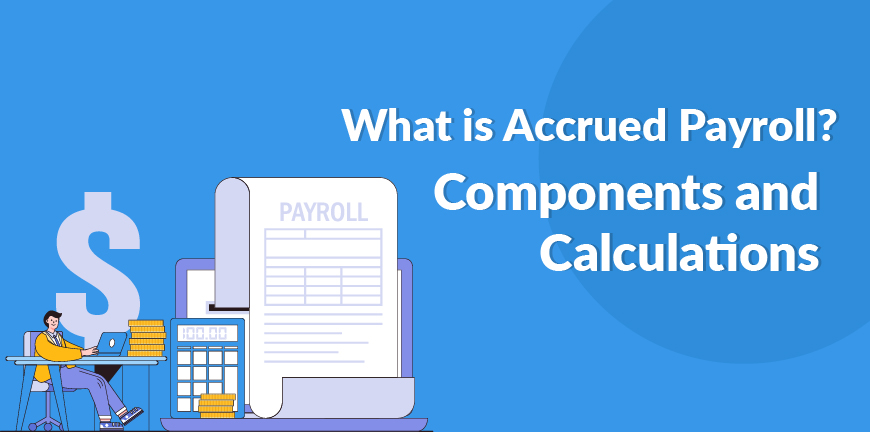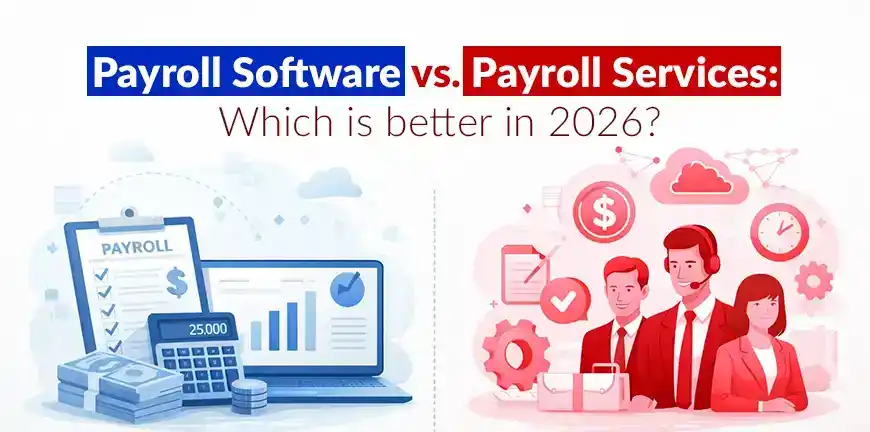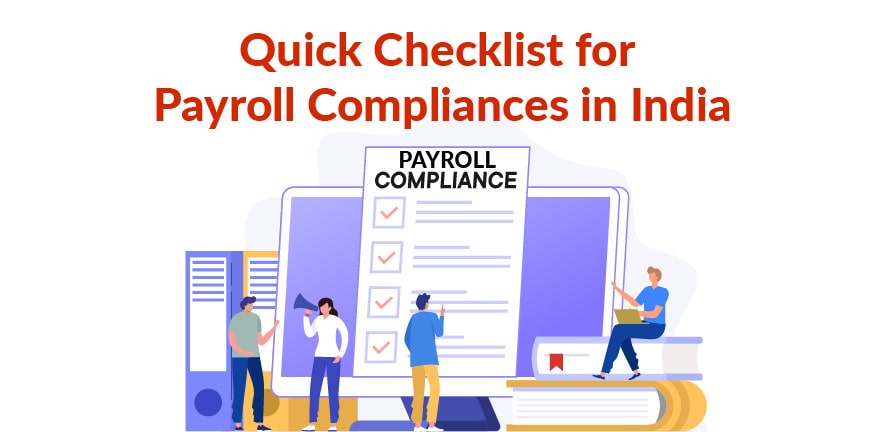How Will Semiconductors Power Next-Gen AI?
29/11/2024
What Is Recruitment Marketing and Why Is It Important?
05/12/2024If the salary is not credited on time, you can expect unhappy and even unproductive employees. Generally, companies keep track of the amount that is due to each employee but has not been credited yet. This is referred to as accrued payroll. Let us now look at a formal definition of the term accrued payroll.
What Is the Definition of Accrued Payroll?
The total amount of salary, benefits and other compensation that is due to employees for work during the specific period, but the company has not paid out yet is called accrued payroll. Accrued payroll is a liability for the company and is grouped under that category in the list of liabilities and assets for a business.
Why is Payroll Accrual Important?
Payroll accrual is important as it represents the accrued amount of money a company owes its employees from the payroll cycle every time it happens. A company must keep track of its accrued payroll to ensure that any lawsuits and resulting penalties are avoided.
It also keeps the company’s reputation intact. Paying off accrued payroll also ensures that the employee engagement is top notch, which in turn also leads to an increase in employee productivity. Monitoring accrued payroll and giving employees regular updates on it also helps win their trust.
Lastly and most importantly, maintaining accrued payroll ensures that the company’s financial statement is on track and that the cash flow both internally and externally is accurately represented by each accrued payroll journal entry. This ensures that the company is aware of its liabilities and the assets it holds too. Eventually, this will help with better financial planning for the future.
What Are the Components of Accrued payroll?
The components of accrued payroll are unpaid wages, accumulated overtime and paid time offs, other benefits and reimbursements that are still unpaid. The accrued payroll may also include any savings on taxes that have been accumulated during the payroll cycle but have not been paid out as yet. Commissions and bonuses are another critical part of accrued payroll that must not be ignored, especially if the business wants to retain its loyal employees, it has recognized above the others in the company.
How to Calculate Accrued Payroll?
To calculate accrued payroll and add an accrued payroll journal entry, here are the key steps that you must follow as a business.
1. Identify the pay period for the accrued payroll
You must have the first and the last days of the period for which there is accrued payroll. These days must be exact and accurate and as per the documentation prepared by both finance and payroll teams.
2. Calculation of wages and salary
Then, for hourly wage employees, you must multiply the number of hours worked with the hourly wage due to each employee and calculate the results. Make sure the employee is categorized correctly and that the hourly wage is accurate.
For salaried employees, you must calculate the number of days worked and the pro rata salary that is due to each employee based on whether the payroll cycle is monthly, weekly or even every two months.
3. Add in any additional earnings
You can add in any bonuses, commissions or overtime pay, or unpaid leave allowances that are due to the employee during the pay period.
4. Add in any employer contributions
Add the employer contributions that are due to each employee during the pay period. These employer contributions must be double-checked for accuracy, ensuring that there is no risk of future claims or complaints.
5. Calculate the final salary
Calculate the final salary with all these additions and update the balance sheet accordingly. And ensure that the results are communicated to the finance teams and other decision-makers too.
Example of an Accrued Payroll Journal Entry
An accrued payroll journal entry would include the debit payroll expense for the wages earned during the period and the the credit payroll as the liability that is due to the employee for the period and will be a negative amount.
An example of this is, if the business owes an employee $20000 in wages for a certain period and the due date is July 5, then in the debit column the payroll expenses would be +20,0000 and in the credit or the liabilities it will be -20,000.
Challenges of Managing Accrued Payroll
1. Securing Great Payroll Talent
Payroll managers and executives are easily recruited but the best among them go to consulting companies. If you cannot secure good talent in payroll, then the risk of human error is higher. And even if you automate the process of accruing payroll, you will need to find people who are well-versed in being able to use the automation effectively.
2. Overworked Payroll Managers
Accrued Payroll is a complex process, and the people involved in payroll are generally overworked, and if they are involved in strategy or any kind of financial planning based on payroll data, then the work increases even further.
3. Time Constraints
Payroll is also something that needs to be executed, updated and documented every payroll cycle. And there are time constraints on how long the process can take. Because there are constraints on how many people have access, given the confidentiality involved in accrued payroll, the task of getting things done on time can be more difficult than previously thought.
4. Payroll Accuracy
The accrued payroll needs to be accurate. Once mistakes are committed, they can be rectified only at high costs to the company. Maintaining accuracy in accrued payroll is an absolute necessity and there must be a few people in the company to oversee the process as well.
5. Payroll Complexity
Payroll is not easy to execute or maintain in a company, because of its complexity. There are several components in accrued payroll calculation. To ensure that all these components are calculated accurately, different people must take ownership of them in the payroll team.
6. Maintaining Confidentiality
How do you ensure confidentiality in employee payroll and ensure that the employee data is secure? This is one very important prerogative in both accrued payroll as well as general payroll. And for this, even though employees have access to payroll data in the employee self-service portal, and possibly even accrued payroll data, ensure that this is secured appropriately.
How Alp Consulting Can Help with Payroll?
Alp Consulting has been managing recruitment and staffing for well over two decades, with services in payroll and compliance too. When it comes to the management of accrued payroll or the payroll process in general, we have worked with several Fortune 500 companies in the past, providing them with the accrued payroll accuracy and timeliness they needed. Talk to us today and let us help you.
FAQs
1. What are the types of Accrued payroll?
The types of accrued payroll and specifically the components of accrued payroll are wages and salaries, paid overtime, bonuses, commissions and other benefits that the company has offered its employees.
2. When should a company pay off accrued payroll?
A company must pay off accrued payroll by the date that it has intimated the employees it will. This date must be communicated in advance by the payroll team and by the management. Any delay in settling the accrued payroll can lead to lawsuits and additional liability.
3. What is the difference between accrued payroll and accrued expenses?
Accrued payroll is a combination of the wages, paid overtime, and other benefits that are due to employees in the company, whereas accrued expenses are the expenses, including travel and other costs to the company accrued over time. Both are liabilities.
4. Who manages accrued payroll?
Accrued payroll is managed by the payroll team and it is shared and closely monitored by the finance team, which maintains the balance sheets of the company. Generally accrued payroll will be managed by the payroll manager itself but there could be another person dedicated to it at times.
5. Is accrued payroll a liability?
Yes, accrued payroll is a liability and the company must pay it off as early as possible. If the company is facing any financial difficulties which are making this difficult, then this must be communicated to the employees concerned as early as possible.
Contact Us For Business Enquiry

Yugandhara V. M
Yugandhara V. M serves as the Assistant Vice President – HRO at Alp Consulting Ltd., bringing over 14 years of rich experience in Human Resource Outsourcing, payroll management, and statutory compliance. He specializes in driving process excellence across HR operations, ensuring seamless service delivery and compliance with labor laws. Yugandhara’s expertise lies in managing large-scale client engagements, optimizing HR processes, and implementing efficient workforce management systems that enhance organizational performance. He also leads comprehensive payroll services, ensuring accuracy, timeliness, and compliance for diverse client portfolios.




